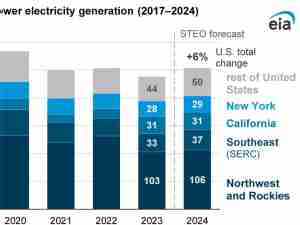Fitch: Offshore Power Transmission Outages Higher Than Expected
posted by AJOT | Mar 28 2017 at 09:03 AM
Major technical outages at UK and US offshore power transmission projects have been more frequent, longer and costlier to repair than initially expected, according to Fitch Ratings' analysis. Strong contractual and regulatory provisions have helped rated projects absorb the effect on financial performance, and ratings therefore remain stable.
Event risk is a bigger factor in the risk profile of offshore transmission assets compared to availability-based PFI/PPP projects, because of the difficulty and cost involved in repairing undersea cabling. A review of cable failures shows there were no major outages in the early years of operations, but outages both in and outside the Fitch-rated portfolio have been significant in the last few years, with 16 outages identified by Fitch, mostly between 2013 and 2016.
The root causes of the outages vary and it is too early to tell whether the increase in the last few years indicates a long-term trend. However, the increase does highlight the importance of strong structural protection for the credit ratings of offshore transmission projects. These protections include insurance policies, contractual provisions and favourable regulation, such as rules that allow projects to continue to receive revenue during an outage or to reclaim repair costs when an outage was beyond their control. We expect these protections to continue to absorb the impact of repair costs and lost revenue on financial metrics.
Performance has also benefited from lower-than-expected operating costs. This has been mainly driven by falling insurance premiums, which represent a significant share of operating costs, as insurers have become more familiar with offshore transmission assets and the market for the asset class has expanded. We do not expect any further reduction in premiums and there is a risk that costs will start to rise following the recent acceleration in outages and insurance claims.









